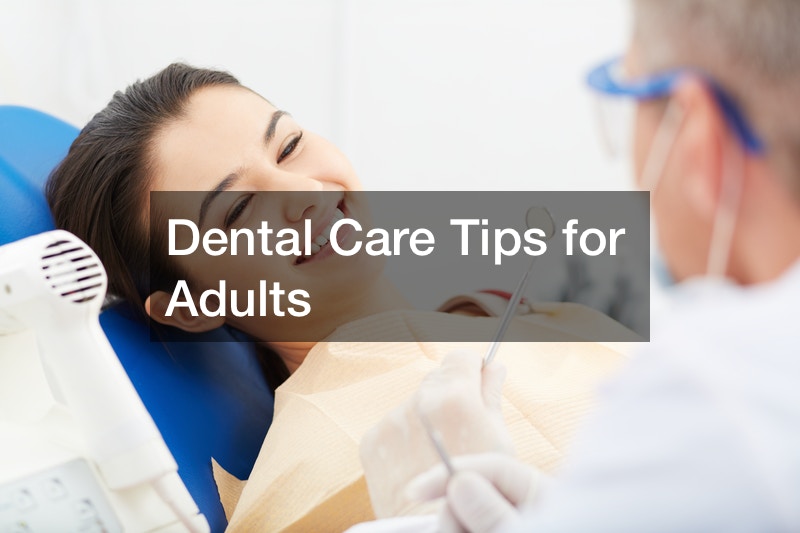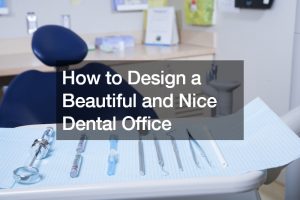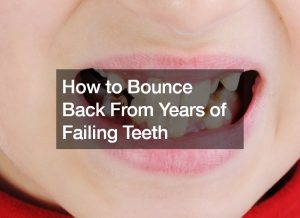
Dental Care Tips for Adults
By Toothbrush History
- Home ,
- 27 Dec

Brushing your teeth helps keep them healthy and strong, but it’s only part of good dental care. To ensure that you and your family have healthy teeth for a lifetime, it’s important to practice these basic dental care tips for adults as well:
Dental care tips for adults start with brushing your teeth twice a day for 2 minutes. This is an easy way to help prevent tooth decay, gum disease, and bad breath — three common problems associated with not brushing teeth. Another idea in the mix of dental care tips for adults includes using an electric toothbrush can make this task easier.
Floss daily. Flossing removes plaque and food particles from the space between your teeth where regular brushing can’t reach. Flossing once a day after brushing may be all you need to do.
Visit the dentist every 6 months. This is a paramount move for dental care tips for adults. Regular visits to the dentist are necessary for teeth cleaning and to detect problems before they become serious or painful. Your dentist will also be able to give you tips on improving your oral health at home, like flossing and using a water pick on hard-to-reach areas of the mouth. Otherwise, you may have to face a root canal and dental crowns. Or, an orthodontic treatment might determine if you need Invisalign. But, thank God these dental services are available.
Don’t bypass these dental care tips for adults. Wear a mouth guard if you play sports. A mouth guard protects against chipped or broken teeth, as well as other injuries like jaw fractures that can occur when playing contact sports like football or hockey. Mouthguards must fit well to work properly in order to do what they were designed to do. Or, you may have to go to a dental clinic and see a cosmetic dentist.
Drink More Water for Healthy Teeth
The first step in preventing cavities is to drink more water. This is one of the most overlooked dental care tips for adults.
Most people don’t realize that keeping your mouth hydrated helps ward off tooth decay. The saliva produced by drinking water protects teeth from bacteria and debris; it also softens food and makes chewing easier, both of which promote good dental health. If you forget all of the tips, do remember this one of the dental care tips for adults.
What’s more, if you drink enough water, you’ll notice that the color of your urine changes from clear to dark yellow. This means that less water is being reabsorbed into your bloodstream, reducing the amount of fluid in your mouth that can lead to tooth decay.
By increasing your intake of water, you can also reduce snacking in between meals. This will help keep your teeth clean between brushings and decrease the number of bacteria in your mouth that causes cavities. Drinking more water may even help to reduce your appetite because it suppresses ghrelin, a hormone responsible for hunger pangs. Water is essential for maintaining a healthy body, so drink! An easy thing to add to your collection of dental care tips for adults.
Though not a secret in the world of dental care tips for adults. It is no secret that eating healthy foods and regular exercise help you to live a long life. But if you really want to stay fit and active, you should also pay attention to your diet. Your teeth are part of your body, so you need to treat them right. What happens if you don’t?
How do Crunchy Fruits and Veggies Help Your Teeth?
Included in the grouping of dental care tips for adults is good ole fashion produce. Crunchy fruits and vegetables contain roughage that helps you clean your teeth while chewing. If you don’t have even a small amount of roughage in your diet, plaque can build up on your teeth, which leads to cavities and gum disease. Even worse, it can lead to the loss of some of your teeth.
So what are the crunchy fruits and veggies? Here are just a few examples: broccoli, apples, carrots, celery, peppers, sweet potatoes, and cucumbers. Keep in mind that these aren’t the only foods with roughage. You can find it in many other types of snacks as well.

What Happens When You Don’t Eat Crunchy Foods?
If you eat soft foods such as white bread and crackers for a long time, plaque can build up easily on your teeth. It’s important to floss every day.
Get a Soft Tooth Brush
Soft-bristled brushes are gentler on your teeth and gums. The average manual toothbrush has about 1,000 bristles that can cause damage to the gums and enamel. Softer bristles should be used in place of hard ones for better cleaning. When shopping for a new brush, look for models with ultra-soft bristles that are suitable for sensitive teeth and gums. Finding the right type will amplify your healthy teeth efforts.
Like any other product, toothbrushes wear out over time. Replace yours every 3-4 months to ensure you have a clean mouth. If you notice fraying or holes in the bristles, it’s time to replace your toothbrush.
To ensure your brush is cleaning your teeth properly, replace it every 3-4 months. Check the condition of your brush by gently bending each bristle upward; if you see any breaks or fraying, it’s time to replace the brush.
Mouthwash for Healthy Teeth
Using mouthwash for healthy teeth is one of the most important things to do. This helps in removing the bacteria that can form on the teeth. Mouthwash can also be used to clean and maintain your teeth. It can help in removing the plaque that can build up on the teeth.
Tobacco use and drinking alcohol are two of the biggest risk factors tied to oral cancer, but smoking isn’t the only bad habit that causes problems.
Using mouthwash for healthy teeth involves using a mouthwash that prevents the buildup of plaque on your teeth. Make sure you read the label to find out how often you should use it, as different types of mouthwash need to be used at varying frequencies. It is best to speak with your dentist about what type of mouthwash you should use for oral health purposes.
The purpose of using mouthwash for healthy teeth is to remove bacteria from your mouth that can lead to gingivitis, cavities, and other oral issues such as bad breath. Mouthwashes containing fluoride are particularly useful at preventing cavities and remineralizing tooth enamel. Some research suggests that using mouthwash may help keep periodontal disease at bay, although further study is needed on this front.

Brush Your Teeth Before Bed
Brushing your teeth before bed is important because it helps remove plaque and bacteria that may cause dental issues. Brushing after dinner is also good practice, but not as important as brushing before bed.
Tartar accumulates on your teeth throughout the day and brushing after dinner only removes about half of the deposits. Brushing your teeth before you go to bed will ensure that you have removed all of the deposits that have accumulated during the day.
Brushing at night will also remove any leftover food particles from your day, which can cause cavities and tooth decay if left in place overnight. This can be especially helpful for those who sleep with their mouths open or grind their teeth while they sleep. By removing these particles, you are preventing them from being reintroduced into your mouth while you sleep and causing damage.
Make Sure Your Toothbrush Holder is Clean
No one wants to use a toothbrush that’s been sitting in a dirty holder. So take care of your toothbrush and its holder by cleaning them regularly. Try rinsing your toothbrush holder with soap and hot water, or put it in the dishwasher. If you don’t, plaque can build up in the creases, where it’s harder to remove.
Store your toothbrush upright to help keep water from getting trapped on the bristles.
Store your toothbrush upright to help keep water from getting trapped on the bristles. Plaque loves moist areas, so keeping your brush upright and allowing it to air-dry before storing it will help prevent bacteria growth.
Place your toothbrush in a holder with small slots or holes so that water drains out after you clean it. It is recommended that you change toothbrushes every three months or more frequently if they become worn or frayed.

Do Not Go Overboard Brushing Your Teeth
Brushing your teeth is a good idea, but brushing too often isn’t. Many people believe that if they brush more often, their teeth will be healthier. But there’s little scientific evidence to support this claim. In fact, overbrushing can damage your gums and cause tooth sensitivity as well as some systemic problems such as heart disease.
Overbrushing results in the loss of protective bacteria from the surface of your teeth. This can actually lead to both gingivitis and periodontal disease, two serious conditions that are linked to other health issues such as diabetes and cardiovascular disease.
The American Dental Association recommends brushing twice a day for two minutes each time. If you’re trying to improve your oral health or prevent cavities, flossing once a day is also recommended. It’s best to brush your teeth after meals — when they’re rich with natural enzymes that help break down food particles and keep them from sticking to your teeth — but before bedtime, it is fine, too. Your gums don’t need any help cleaning before you go to sleep anyway, so there’s no risk of overbrushing then. That can cause you to go to a dental clinic.
Take Your Vitamins
Many people have to start taking vitamin supplements after they get braces since they cannot eat many of the foods that contain the nutrients needed by teeth and bones.
How vitamins help teeth and gums:
- Vitamin A helps build gum tissue and maintain healthy teeth.
- Vitamin C strengthens tooth enamel and aids wound healing.
- Calcium helps strengthen bones. Vitamin D helps the body absorb calcium.
- Vitamin E is a powerful antioxidant that can reduce gum disease in smokers.
- Vitamins and minerals work together to form an essential part of your diet. Your dentist will be able to recommend specific vitamins for you on an individual basis.

Bye, Bye Sugary Drinks
It’s no secret that sugary drinks do a number on your teeth. The link between soda and tooth decay is strong — soda contains sugar, which causes plaque buildup, germs, and cavities. It also doesn’t help that soda can stain teeth.
Ingredients in soda contribute to tooth decay:
- Sugar
- Acid
- Starch
But equally important are the habits formed around drinking soda. When you drink a lot of soda, you don’t drink as much water, which is necessary to keep your mouth healthy. And while brushing after every soda may be inconvenient, it’s important to reduce acidity and bacteria levels in your mouth.
The more sugary drinks you drink, the more often you’ll need to visit the dentist for checkups and cleanings — not exactly what you want to spend your time doing when you could be doing other things. Honestly, sugary drink residue will have you spending more money than you ever wanted to spend. Now, when you think about it, are the sugary drinks worth it?
Lastly, when you brush before bed, it gives the fluoride in your toothpaste time to do its job while you sleep. Brushing first means that the fluoride is able to seep into the enamel of your teeth, making them stronger against acid and other debris lurking around in your mouth overnight.
Every day, try to eat your crunchy fruits and vegetables that help keep your teeth healthy and strong!


